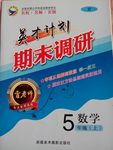题目内容
both by bus and by train, because lots of people go home from work at this hour. He had to join a long
queue of people who were waiting for tickets. When at last his turn came, he got the right ticket. By
asking several people the way, he also found the right platform (站台). It was crowded and he was not
able to get on the first train, but he was able to move nearer to the edge (边) of the platform to be ready
to get on the next one. When the train came in, Jim was thrown onto the train by the rush of the people
behind. The doors closed and the train moved off. Since he was unable to see the names of the stations
where the train stopped, he had to count the number of stops so that he knew where to get off. His station was the seventh along the line.
When the train reached the seventh station, Jim got off. But he was surprised to see that he had got
off at a station that he had never heard of. A man on the platform told him that he had traveled on a train
in the wrong direction.
B. To meet his friends.
C. To say goodbye to his friends.
D. To go home from work.
B. A few people waiting to buy tickets.
C. Many trains there.
D. Many people waiting to buy tickets.
B. To wait in a long queue.
C. To talk to some people.
D. To ask the way to the train.
B. They were too small for him to see them.
C. He was too busy to see them.
D. It was too crowded for him to see them.
B. The ticket seller in the station.
C. All the people at the station.
D. The people behind him on the platform.

 名师点拨卷系列答案
名师点拨卷系列答案 英才计划期末调研系列答案
英才计划期末调研系列答案阅读理解
Happy Children’s Palace
MONDAY 19:00—20:30 English learning Prof. G. White Would you like to improve your English? This is for middle school students. (2 weeks) TUESDAY 17:30—19:00 Photography(摄影) Mr. Green Learn to take good pictures. Bring your own camera with you. (4 weeks) WEDNESDAY 18:00—19:00 Office 2000 Prof. Wang Lan Learn how to use the new software. (10 weeks) FRIDAY 19:00—20:30 Painting Miss Yang Jing Would you like to learn painting? It is for beginners only. (16 weeks) SATURDAY 15:00—16:30 Cambridge Young Learner’s English Prof. J. Brown This course is for the children at primary school(小学). (20 weeks) SUNDAY 10:00—12:00 Swimming, club Coach: Liu Xin Want to swim as fast as a fish? (9 weeks)
1.You can go to Happy Children’s Palace to learn some skills(技能) exc
ept ________.
|
A.on Monday |
B.On Wednesday |
|
C.On Thursday |
D.on Sunday |
2.If you want to improve your English, you’d better learn it from ______.
|
A.Miss Yang Jing |
B.Prof. J. Brown |
|
C.Prof. Wang Lan |
D.Prof. G. White |
3.If you are interested in painting and want to be an artist, Miss Yang Jing can teach you ______.
|
A.from 19:00 to 20:30 on Monday |
B.from 17:30 to 19:00 on Tuesday |
|
C.from 7:00 to 8:30 on Friday evening |
D.from 18:00 to 19:00 on Wednesday |
4.If you don’t have enough time and you want to learn a skill in two months, you’d better learn ____.
|
A.how to use the new software |
B.swimming |
|
C.how to take pictures |
D.painting |
5.Which of the following statements(陈述) is TRUE?
|
A.Prof. G. White gives a talk about English learning for students on Monday morning. |
|
B.You can go to learn how to use Office 2000 from Prof. J. Brown. |
|
C.If you want to learn swimming, you should go there on Sunday afternoon. |
|
D.Prof. J. Brown teaches children English from 3:00—4:30 on Saturday afternoon. |
| 阅读理解。 | ||||||||||||
| Harry Potter is a set of popular books created by J.K.Rowling in Britain. The books tell us some stories about a talented wizard (天才魔法师), Harry Potter. When he was eleven years old, he had an unhappy life. However, a strange letter changed everything. It said he was accepted by Hogwart's a magic school which was closed to the common people. All kinds of adventures (冒险) happened to  Harry from then on. He met Ron Weasley and Hermione Granger on his way to school. They became Harry from then on. He met Ron Weasley and Hermione Granger on his way to school. They becamegood friends later. Harry did well in his lessons and worked hard to play magic. Harry always had a positive attitude(态度)when he faced the difficulties. With the help of his friends, he tried his best to beat the enemies. Finally, the world peace came back. Smile appeared on everyone's face. If someone wants to know what takes place in the magical world, he will have to read the set of books by himself! | ||||||||||||
| ||||||||||||